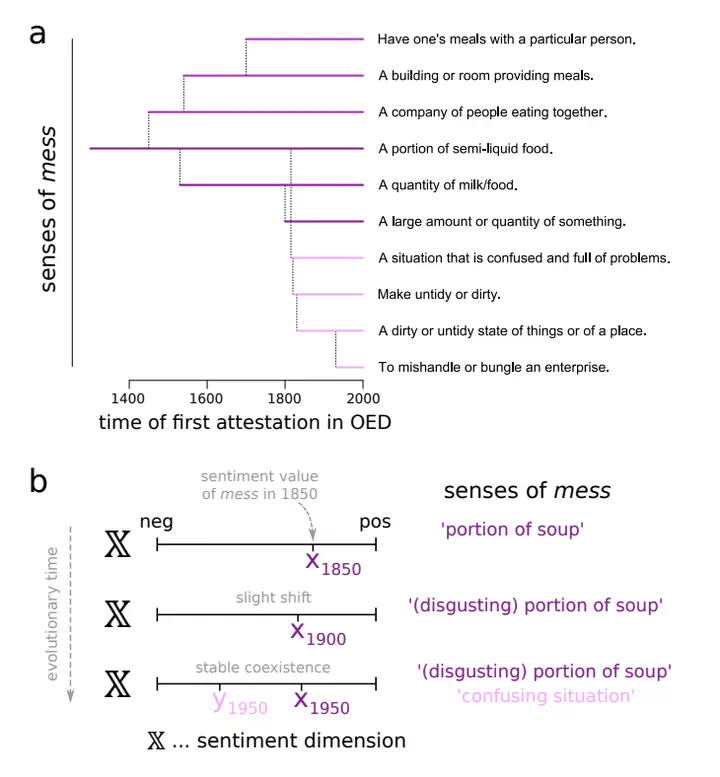Abstract
Evidently, words can have multiple senses. For example, the word mess refers to a place to have food or to a confusing situation. How exactly multiple senses emerge is less clear. In this work, we propose and analyze a mathematical model of the evolution of lexical meaning to investigate mechanisms leading to polysemy. This model features factors that have been discussed to impact the semantic processing and transmission of words: word frequency, non-conformism, and semantic discriminability. We formally derive conditions under which a sense of a word tends to diversify itself into multiple senses that coexist stably. The model predicts that diversification is promoted by low frequency, a strong bias for non-conformist usage, and high semantic discriminability. We statistically validate these predictions with historical language data covering semantic developments of a set of English words. Multiple alternative measures are used to operationalize each variable involved, and we confirm the predicted tendencies for twelve combinations of measures.
